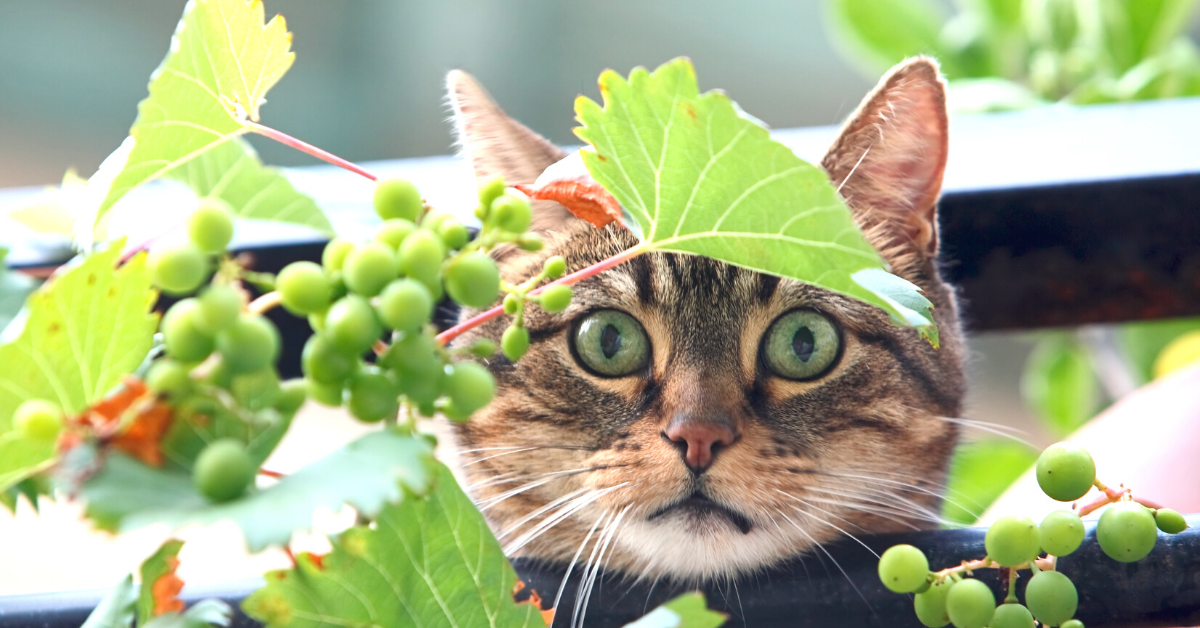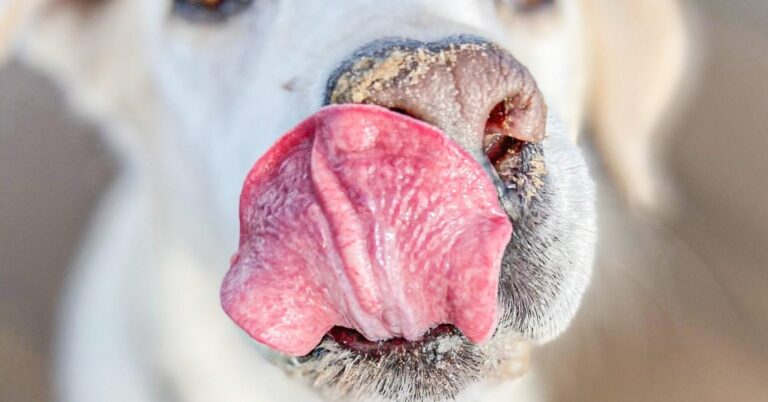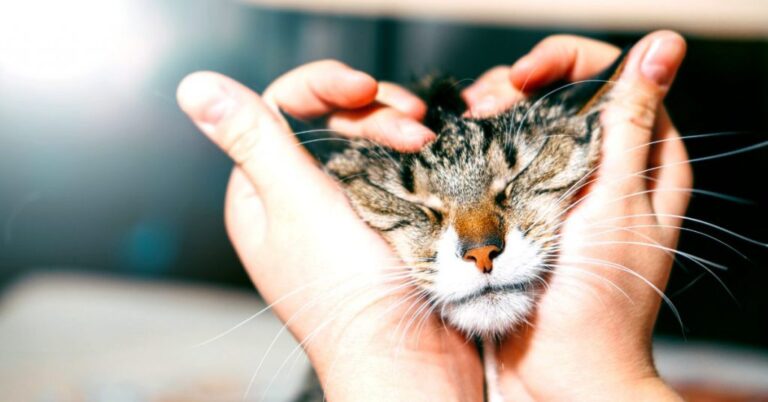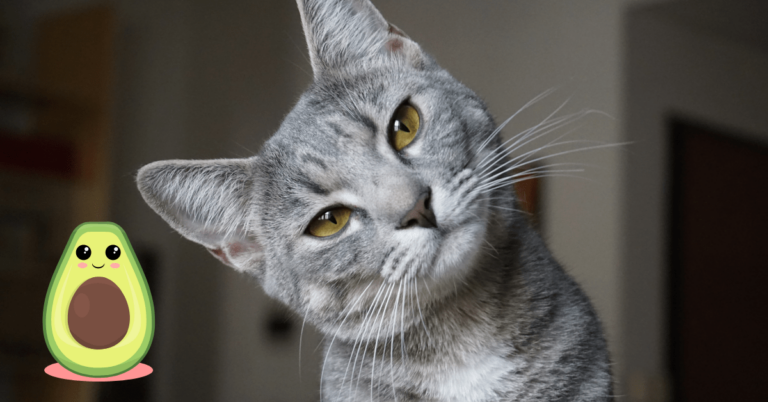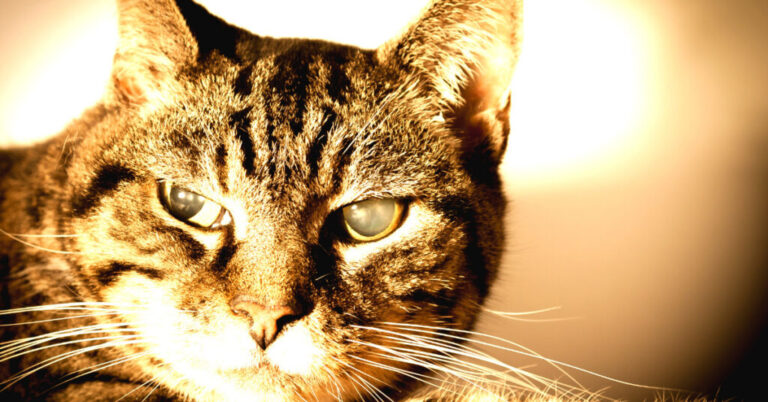Can Cats Eat Grapes?
Can cats eat grapes? Although it’s common knowledge that grapes and raisins are poisonous to dogs, did you realize that grapes are also toxic to cats?
Grapes are harmful to pets for unknown reasons, but the dangers they bring are serious.
Some human foods are good for cats’ diets, while others might create acute issues with long-term consequences.
Are Grapes Safe for Cats?
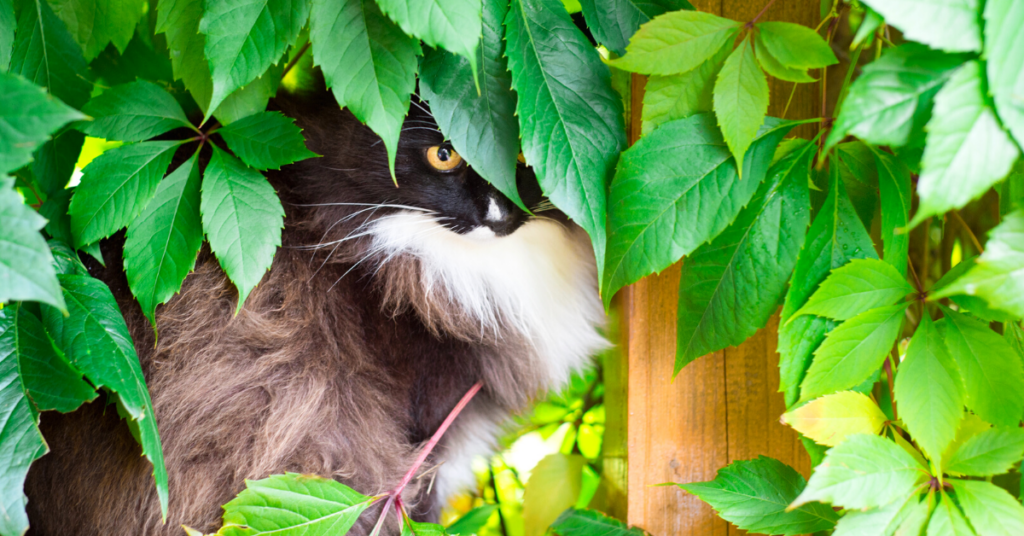
We regret to inform you that, as nice as grapes are for people, you should not feed grapes to your cat.
Grapes do not provide the same health advantages to cats as they do to humans, and grapes are actually poisonous to cats and dogs.
Grapes are dangerous for dogs, as they can cause prompt acute kidney failure in dogs, according to the ASPCA. Scientists haven’t found out the specifics yet.
Grapes should not be fed to cats, according to veterinarians, because there are indicators that they can affect cats and ferrets in the same way.
According to the Pet Poison Helpline, grapes, raisins, and currants all contain comparable chemicals and are rated as “moderate to severe” in terms of toxicity.
Although some cats that ingest grapes may never exhibit indications of renal damage, the hazards are just too severe.
Because the exact amount of grapes or raisins required to make cats (and dogs) sick is unclear, pet owners should avoid giving their cat any grapes or raisins.
Can Cats Eat Fruit?
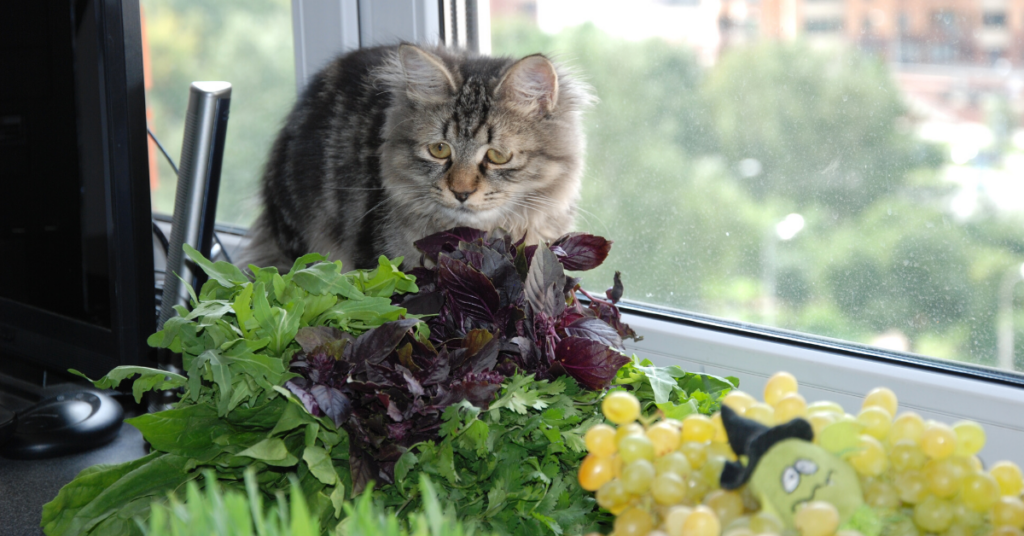
There is a silver lining. Because cats are carnivores, they aren’t very interested in fruit.
There are a few fruits that are safe for cats to eat. Strawberries or bananas are fine in modest amounts, but others are unsuitable for a number of reasons. Aside from grapes, there are a few fruits that cats should avoid:
- Citrus (According to the ASPCA, all citrus fruits contain some quantity of citric acid, which can cause central nervous system difficulties in big enough concentrations and gastrointestinal trouble in lower ones.)
- Raisins and currants
- Coconut or coconut oil
The sugar and carbohydrate content of fruit is a major concern when feeding it to a cat. Cats should only consume 10% carbs each day, according to experts.
It’s a good idea to check your cat’s food label if you’re concerned that he’s consuming too many carbs.
When it comes to cat food, some businesses may include grains when it should mostly be protein-based.
Symptoms of Grape Toxicity in Cats
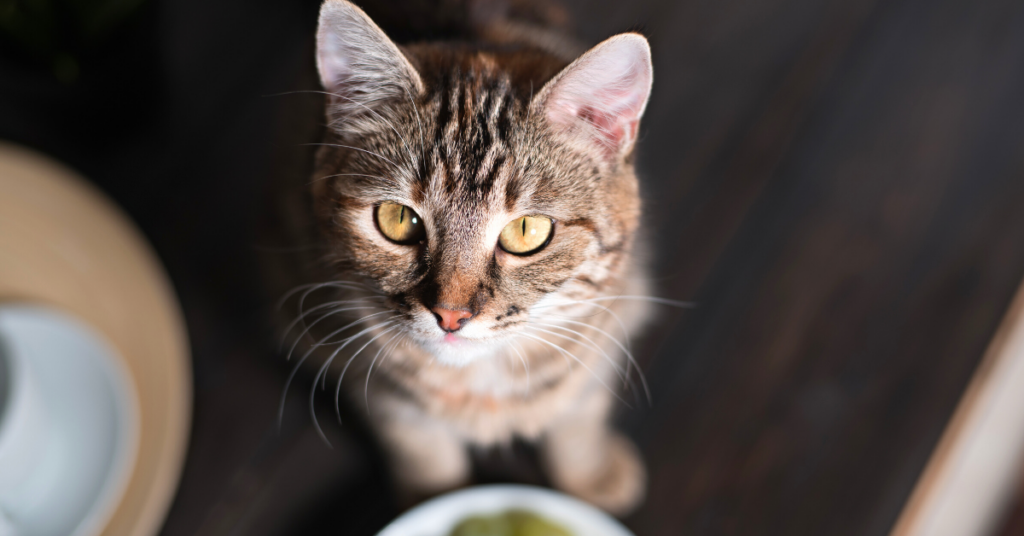
If your pet eats grapes by mistake, here are some warning signals to look out for:
- Vomiting or Diarrhea
- Dehydration
- Low energy
- Loss of appetite and weight loss
- Abdominal pain
- Excessive water drinking
- Frequent urination
Grapes and grape seeds are a choking threat, even if your cat does not show signs of poisoning.
To keep grapes out of your cat’s reach, put them in locations where they won’t be seen, such as the refrigerator. Even high shelves and cabinets may be accessed by a cat who enjoys being in high areas.
What to Do if Your Cat Eats Grapes
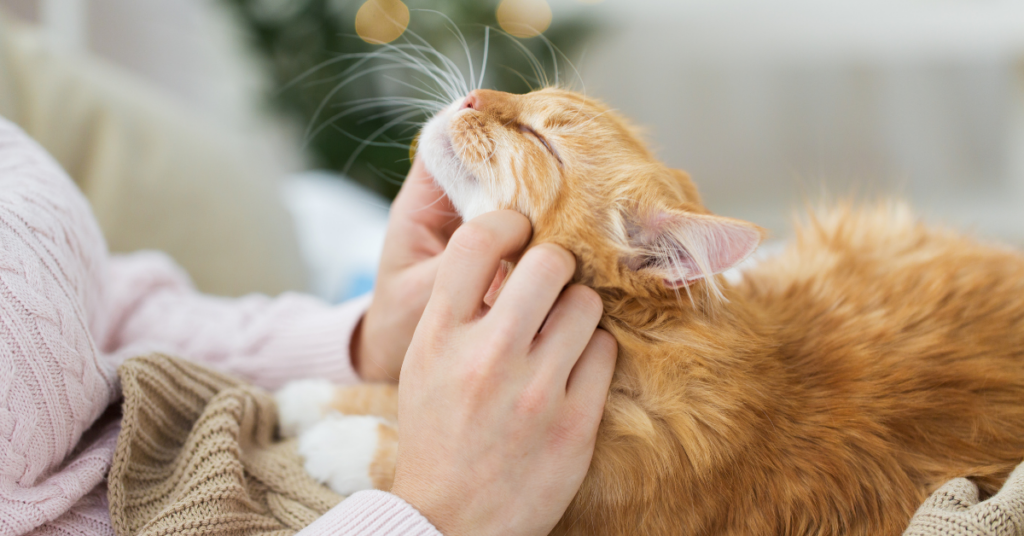
If your cat has eaten grapes or raisins, contact your veterinarian or the ASPCA Animal Poison Control Center (888-426-4435) right away.
You don’t have to wait until clinical symptoms appear to seek care. Because grape toxicosis is a progressive sickness, it is best to treat it as soon as possible.
How is Grape Toxicity in Cats Treated
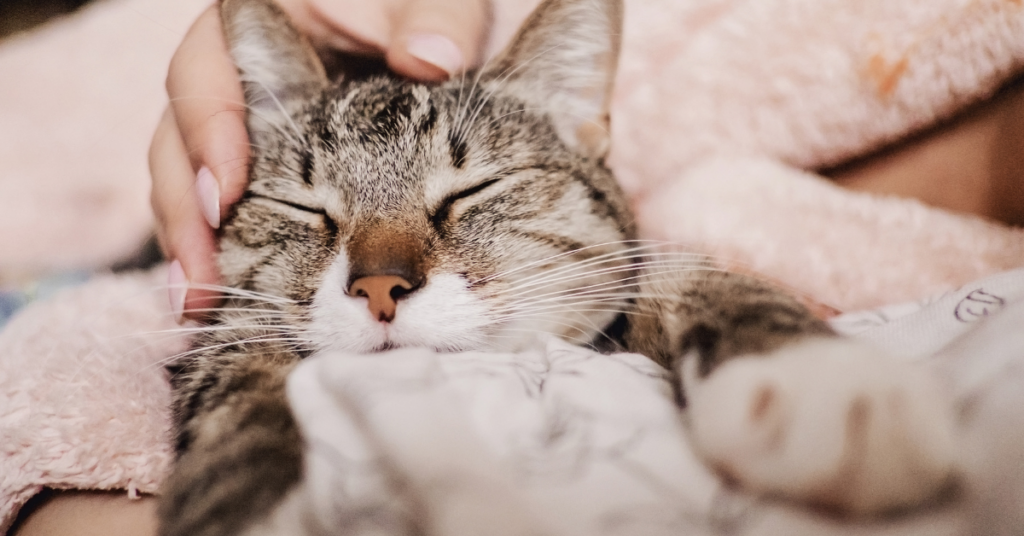
Grape toxicosis in pets has no treatment. The first step is to eliminate the poisonous food from the animal’s system, which is usually accomplished by making them vomit.
Depending on when your pet ate the grape or raisin, and how many he or she ate, your veterinarian will advise you on how to proceed.
After they’ve puked, your vet may give them a dosage of activated charcoal, which acts like a magnet, attracting and carrying poisonous particles through the gastrointestinal tract and out of the body.
If your pet ate a substantial number of grapes or raisins, or if they suffered vomiting or diarrhea within twelve hours of consuming the hazardous items, your veterinarian may suggest IV fluids.
Depending on the cat’s symptoms, further supportive therapies (such as medication) and monitoring may be required.
Healthy Alternatives
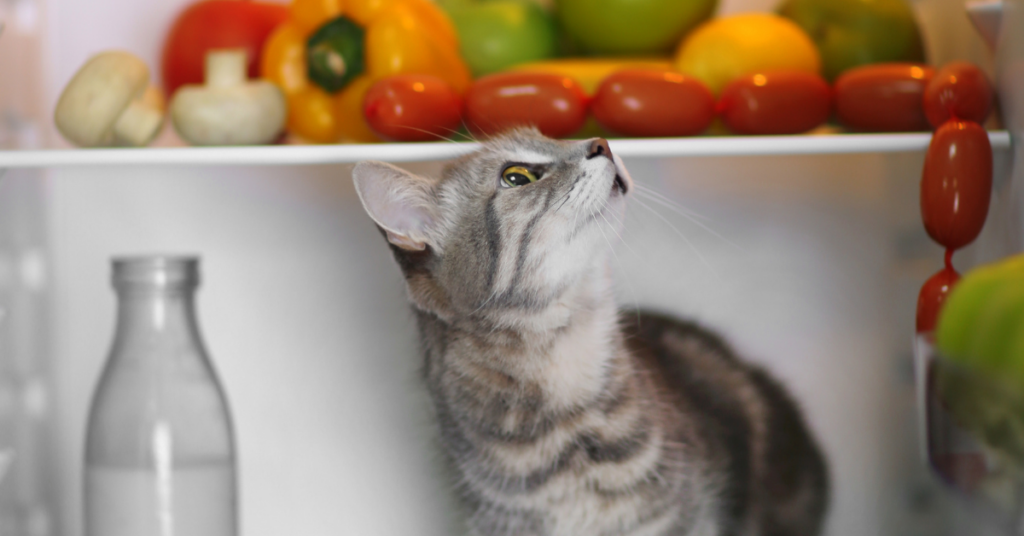
Try to feed your feline friend vegetables instead of fruit if you don’t want your cat to eat fruit. According to the ASPCA, these vegetables are not dangerous to cats:
- Zucchini
- Celery
- Carrots
- Green bell peppers
- Spinach
- Peas
- Pumpkin
- Broccoli
Most cats are notorious for being averse to trying new foods. If you want them to try something new for a change of pace in their diet, do it gradually.
More significantly, removing entire meals from their usual diet will deprive them of crucial nutrients included in properly made cat food.
The vast bulk of what cats consume should be a balanced diet. Treats, in general, are unbalanced and should not account for a major amount of a cat’s daily consumption.
When to See a Veterinarian
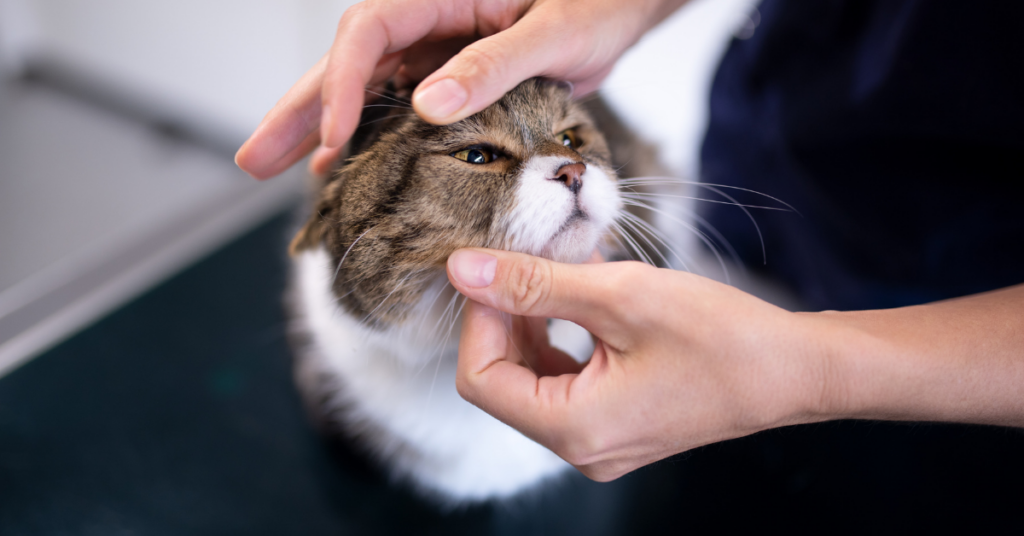
If you suspect your cat ingested grapes or raisins, contact your nearest emergency clinic as soon as possible.
It is preferable to treat grape toxicosis as soon as possible because it is a progressive illness.

